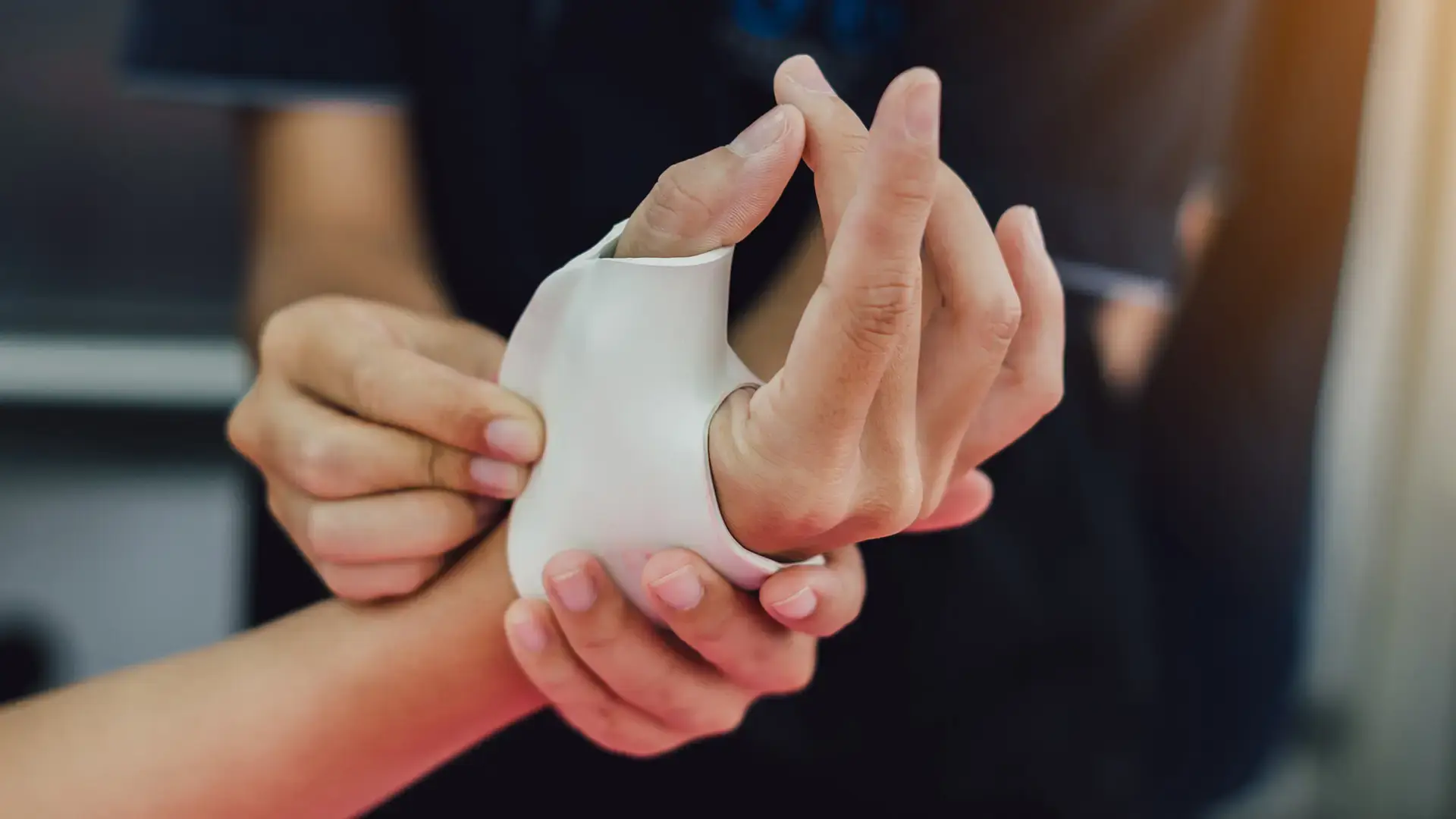Summarize This Article:
Summarize This Article:

Metacarpal fractures, or breaks in the palm bones of the hand, are some of the most common types of hand fractures. These injuries can result from direct trauma, overuse, or high-impact activities, and they can affect people of all ages and lifestyles.
At The Center for Hand & Upper Extremity Surgery, our fellowship-trained surgeons specialize in diagnosing and treating broken fingers and metacarpal fractures using advanced methods. With personalized treatment plans, we aim to restore full hand function and minimize long-term complications.
Treatment for metacarpal fractures depends on the location, severity, and whether the bone has shifted out of place. For this reason, getting an early diagnosis and the proper treatment to prevent healing complications is key.
Some fractures can be treated without surgery. Non-surgical treatment options may include a combination of closed reduction, a noninvasive method in which the bone is manually realigned, immobilization with a splint or cast, and/or physical therapy.
If the fracture is unstable, displaced, involves multiple bones, or affects the surrounding joints, however, you may need surgery. Metacarpal surgery may also be required if previous conservative care has failed or if you’ve had complications, such as a nonunion fracture.
Other surgical options can include:
Open Reduction and Internal Fixation (ORIF)
This procedure involves repositioning the broken bones so they are properly aligned and stabilizing them with metal plates, screws, or pins. ORIF helps guarantee that the bones heal correctly and restores the hand’s function and appearance.
Percutaneous Pinning
For certain hand fractures, a surgeon may insert pins through the skin to hold bone fragments in place without requiring a large surgical incision.
Revision Surgery
If a previous metacarpal surgery was unsuccessful, your surgeon may recommend revision surgery. During this procedure, your surgeon will reassess the hand and correct any alignment issues, nonunion, or complications from earlier procedures.
After hand surgery, you’ll usually require splinting or casting, followed by a personalized rehabilitation program to regain motion, strength, and function. Recovery time varies person to person, but it often ranges from 6 to 10 weeks, depending on the injury and how well you respond to treatment.
Choosing the right specialist is critical when treating hand fractures. At The Center for Hand & Upper Extremity Surgery, our surgeons are fellowship-trained in complex hand, wrist, and nerve procedures, including metacarpal surgery. We take a collaborative, precision-based approach that prioritizes function, comfort, and long-term outcomes.
Recognizing symptoms early and receiving care from a dedicated hand expert can significantly improve your recovery. Don’t wait to schedule a consultation.
If you’re noticing pain, swelling, bruising, or difficulty moving your fingers after a fall, direct blow, or trauma to the hand, it’s time to have your injury evaluated by a specialist.
You should also seek medical attention if you notice:
Can I still move my fingers if I have a metacarpal fracture?
Yes, in some cases, people with metacarpal fractures can still move their fingers, but movement may be painful or limited. The presence of motion doesn’t rule out a fracture. If pain, swelling, or deformity is present after trauma to the hand, medical evaluation is recommended, even if you can still move your fingers.
How do I know if my hand is broken or if I just have a sprain?
While both can cause pain and swelling, a metacarpal fracture often results in more intense, localized pain, noticeable swelling, bruising, and sometimes a visible deformity or misalignment in the hand. You may also experience difficulty moving your fingers or gripping objects.
What should I do immediately after injuring my hand?
If you suspect a hand injury, stop using the hand immediately. Apply ice to reduce swelling and keep the hand elevated. Avoid trying to “shake it off” or self-diagnose.
How long does it take to recover from hand surgery?
Recovery time depends on the fracture type and the surgical procedure, but most patients begin to heal within 6 to 10 weeks.


.webp)






